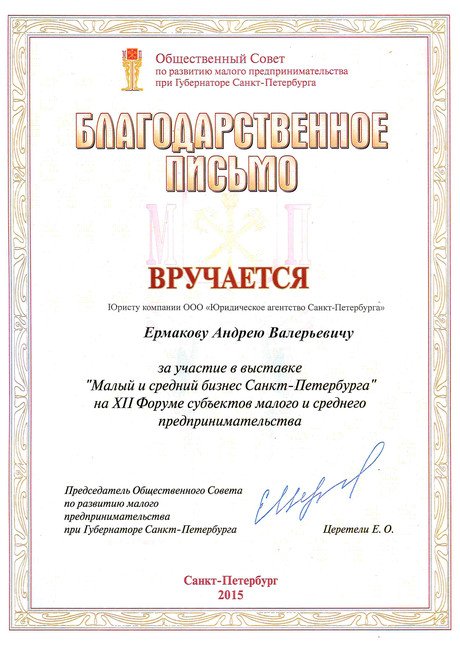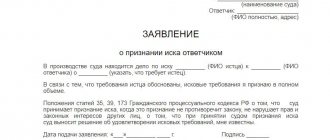In addition to terminating and repudiating the contract, you can try this method of protecting your right, such as a statement of claim to declare the transaction invalid. Moreover, this applies not only to the contract, but also to any other obligation. After all, the deal can be one-sided. And going to court with such a claim will be the correct way to protect the right. But, as in every civil case, there are nuances. They concern both documents submitted to the court. So does the plaintiff, defendant, statute of limitations and legal grounds.
We have posted the main nuances in which a claim to invalidate a transaction will be satisfied by the court in this publication. You can ask your questions to the duty lawyer.
The legal basis for the claim is paragraph 2 of Chapter 9 of the Civil Code of the Russian Federation. There are a significant number of reviews of the judicial practice of higher courts. Including, Resolution of the Plenum of the Armed Forces of the Russian Federation dated June 23, 2015 No. 25, etc. Judicial practice is very numerous.
:
Statement of claim to declare the transaction invalid
Where to start: choosing grounds
Invalidity can be recognized and proven only after the transaction has been completed. The period for filing a claim can be a year, 3 years or 10 years - depending on who is the initiator of the claim and under what circumstances the transaction became invalid. If only parts of an agreement need to be declared voidable or void, the time limits for this are set at 1 and 3 years.
The following may serve as grounds for declaring a transaction void:
- imprisonment by an incompetent or minor person;
- imaginary;
- contradiction of the conditions with the provisions of the law, as well as moral norms;
- if the transaction is property, then encumbrances or the owner’s lack of rights to dispose of the property.
Important! Very rarely, but invalid transactions are recognized as void by the court. By default, all transactions specified in Resolution of the Plenum of the Supreme Court of the Russian Federation No. 25 are considered void - this list is precisely the result of the recognition of certain types of transactions by several dozen courts.
A transaction may be considered voidable if:
- consisted of a person who was not aware of his actions;
- committed by a minor;
- was either under pressure (psychological, physical) or in a state of delusion;
- recognized as non-purpose for the activities of a legal entity.
Limitation period for contestable transactions: a rebus for descendants from the authors of the Civil Code
The Civil Code of the Russian Federation, primarily due to an objective reason - the needs of a dynamically developing civil turnover, is permanently in the process of “modernization”. However, due to the fact that changes are made fragmentarily, and at different times in the legislative process different scientific doctrines (scientific schools) receive priority, sometimes a legal institution (legal category) receives very eclectic regulation. A clear example of such “legislation” was the rules for applying the statute of limitations in disputes about voidable transactions - clause 2 of Art. 181 Civil Code of the Russian Federation. The shortcomings of legislative technology had a negative impact on practice: some judges of the Supreme Court of the Russian Federation (in the “refusal” rulings on the “2nd cassation”) interpreted contradictory norms in a very primitive manner to the detriment of bona fide participants in civil circulation. However, it is encouraging that the Plenum of the RF Armed Forces did not clearly support this position of its colleagues. True, he did not directly refute it, limiting himself to a “half-hearted” motivation.
But before revealing the declared “intrigue”, it is advisable to identify the logical connections of paragraph 2 of Art. 181 of the Civil Code of the Russian Federation with other legal norms governing disputes over invalid transactions.
1. Fundamental differences in the legal regulation of voidable and void transactions.
1.1. The invalidity of void and voidable transactions as an objective reality.
Quote
According to paragraph 1 of Art. 166 of the Civil Code of the Russian Federation “a transaction is invalid on the grounds established by law, due to its recognition as such by the court (voidable transaction) or regardless of such recognition (void transaction).”
With insignificant transactions, at least in “theory,” everything is more or less clear.
A void transaction due to an initial contradiction to a legislative norm is invalid from the moment it is completed, regardless of the subjective opinions, intentions and actions of not only the parties, but also other participants in civil legal relations (including regulatory government bodies). That is, the invalidity of a void transaction becomes an objective reality (legally significant fact) immediately from the moment of its conclusion (signing) in the presence of 2 conditions:
- the transaction violates a legally established prohibition or order;
- The Law (hereinafter referred to as the regulations specified in Article 3 of the Civil Code of the Russian Federation) specifies the nullity of the transaction as a consequence of such a violation.
This means that participants in civil legal relations not only have the right, but are obliged in their activities (civil transactions) to proceed from the fact of the invalidity of a void transaction (under the threat of being accused of bad faith and/or negligence/imprudence).
Accordingly, the claim to invalidate a void transaction is essentially aimed at establishing a legally significant fact that existed in objective reality by virtue of the Law, regardless of this judicial act. And these cases, again based on “theory,” are subject to resolution according to the rules of special proceedings (and not claims). This is precisely the reason for the negative attitude of orthodox jurists towards the legitimization of this method of protecting violated civil law. But this is a topic for a separate study (note: this claim was finally “legalized” by amendments to the Civil Code of the Russian Federation introduced by Federal Law No. 100-FZ of May 7, 2013).
Similar relations in contested transactions are regulated somewhat differently.
The invalidity of a contested transaction becomes an objective reality solely on the basis of a court decision, which acquires legal significance only after it enters into legal force (Part 1 of Article 16 of the Arbitration Procedure Code of the Russian Federation and Article 7 of the Federal Code of Law of April 28, 1995 No. 1-FKZ “On Arbitration courts in the Russian Federation"). This means that a very significant factor (which cannot be “discounted”) is time: from the moment the claim is filed in court until the judicial act entering into legal force by which the contested transaction is declared invalid, as a rule, at least 6 months pass (1st instance + appeal). Until this moment, the voidable transaction is valid - that is, the obligations enshrined in it must be properly fulfilled by the parties (in full and on time).
Accordingly, the requirement to recognize a voidable transaction as invalid by its legal nature is a transformative claim aimed at terminating the existing legal relationship (established by a voidable transaction) and replacing it with obligations to fulfill the consequences of the invalidity of this voidable transaction, established by the Law. In connection with the above, the judicial act by which this claim is satisfied, itself becomes (after entering into legal force) a legally significant fact.
1.2. Mutual rights and obligations of the parties to void and voidable transactions.
Quote.
According to paragraphs. 1 and 2 tbsp. 167 of the Civil Code of the Russian Federation “an invalid transaction does not entail legal consequences, with the exception of those related to its invalidity and is invalid from the moment of its completion. <…> If the transaction is invalid, each party is obliged to return to the other everything received under the transaction.”
Since a void transaction is invalid by virtue of the Law, the obligation to return to each other everything received under a void transaction arises immediately from the moment of execution of this void transaction. Let us remind you: “in theory,” the parties to a void transaction not only have the right not to fulfill the void transaction, but they are obliged to ignore it under the threat of negative consequences: what is received under a void transaction is subject to unconditional return.
Otherwise, similar relations regarding voidable transactions are settled.
Only after the entry into force of a judicial act by which the contested transaction is declared invalid:
- a mutual obligation (rights and obligations) of the parties to each other arises to return what was received under the transaction (mutual restitution);
- the right to demand restitution appears (or other consequences of the invalidity of a voidable transaction established by law);
- the parties become creditor and debtor to each other in an obligation to return everything received under an invalid transaction.
At the same time, the legal norm of paragraph 1 of Art. 167 of the Civil Code of the Russian Federation means that the judicial act by which a voidable transaction was declared invalid extended (after it entered into legal force) the effect of the obligation (mutual restitution) to the past period of relations between the parties (from the moment of execution of the voidable transaction).
And before this judicial act comes into force:
- the obligations established (secured) by this transaction apply, therefore the parties are obliged to fulfill it properly within the time limits agreed upon by the voidable transaction;
- neither the parties, nor, especially, other participants in civil transactions have the right to ignore this valid transaction (even if it has already been challenged in court).
It is obvious that the claim for the application of the consequences of the invalidity of the transaction (both void and voidable), stated as in accordance with paragraph 2 of Art. 167 of the Civil Code of the Russian Federation (“if the transaction is invalid, each party is obliged to return to the other everything received under the transaction” - the so-called “restitution claim”), and in accordance with paragraph 2 of Article 1103 of the Civil Code of the Russian Federation (“on the return of what was executed under an invalid transaction” ) - is a classic claim for award, during which the court must, before “awarding” (“collecting”), establish specific parameters for the mutual rights and obligations of the parties to this legal relationship.
1.3. The structure of legal norms governing disputes over voidable transactions.
As an example, let’s consider the legislative norm regulating relations under the “enslaving deal” - these are paragraphs 3 and 4 of Art. 179 of the Civil Code of the Russian Federation.
Quote.
In accordance with paragraph 3 of Art. 179 of the Civil Code of the Russian Federation: “A transaction on extremely unfavorable conditions, which a person was forced to make as a result of a combination of difficult circumstances, which the other party took advantage of (a enslaving transaction), may be declared invalid by the court at the request of the victim.” According to paragraph 4 of Art. 179 of the Civil Code of the Russian Federation “ IF a transaction is declared invalid on one of the grounds specified in paragraphs 1 - 3 of this article, the consequences of invalidity of the transaction established by Article 167 of this Code apply. In addition, losses caused to the victim are compensated by the other party. The risk of accidental destruction of the subject of the transaction is borne by the other party to the transaction.”
Structuring (decomposition into components) allows us to establish that this legislative norm consists of two legal norms:
- Legal norm No. 1 defines the conditions (the necessary composition of legally significant circumstances) and the procedure for recognizing an “enslaving” transaction as invalid.
- Legal norm No. 2 defines the method and procedure for the protection/restoration of violated rights - we note: implemented only after the court declares the “enslaving” transaction invalid (since the right to restitution arises from this moment).
Legal norm No. 1
The disposition of the 1st legal norm is contained in the phrase “A transaction on extremely unfavorable conditions, which a person was forced to make as a result of a combination of difficult circumstances, which the other party took advantage of (enslaving transaction) <...>.”
Since this disposition is very “uncertain”, the specification of the factual composition and the giving of legal significance to the circumstances referred to by the plaintiff in confirmation of the “bondage” of the transaction occurs solely at the “judicial discretion”. That is, only the court (based on the evidence available in the case) concludes that the circumstances specified in the claim are (hereinafter quoted from paragraph 2 of Article 181 of the Civil Code of the Russian Federation) “the basis for declaring the transaction invalid.” Until this point, the plaintiff’s “knowledge” of these circumstances is merely his subjective opinion. Which (this “knowledge”), if the court refuses the claim (including by canceling the decision of the lower court previously made in its favor), recognizing the absence of these circumstances or their insignificance, will turn out to be incorrect (erroneous).
The restorative sanction of this legal norm is contained in the phrase “<...> may be declared invalid by the court at the request of the victim.”
It is obvious that in order to implement legal norm No. 1, it is necessary to express the will of the victim in a proper procedural form: a claim demanding recognition of the voidable transaction as invalid. Let us repeat that in this case, the court decision, which satisfied this requirement, is transformative in nature and becomes a legally significant fact that objectifies the transformation of the contractual legal relationship into an obligation to fulfill the consequences of the invalidity of the transaction.
Legal Rule No. 2:
The disposition of the 2nd legal norm is contained in this fragment: “If a transaction is declared invalid on one of the grounds specified in paragraphs 1 - 3 of this article <...>”, and the right of restorative sanction is in this: “<...> the consequences of the invalidity of the transaction apply, established by Article 167 of this Code. In addition, losses caused to the victim are compensated by the other party. The risk of accidental destruction of the subject of the transaction is borne by the other party to the transaction.”
Now is the time to pay attention to the following very important points:
- The preposition “IF” means that this rule begins to operate only on the condition that the contested transaction is declared invalid (and if the claim is rejected, it does not apply).
- The legal norm begins to operate only after the judicial act by which the contested transaction is declared invalid comes into force. And this is at the earliest - a month after the announcement of the decision by the court of 1st instance. Accordingly, until this moment, the claim for the application of the consequences of the invalidity of a contested transaction (the so-called “restitution claim”) cannot be considered by the court on its merits at all. Consequently, strictly speaking (according to the “letter of the Law”), the court of first instance does not have the right to apply the consequences of the invalidity of this transaction at the same time as satisfying the claim to recognize a contested transaction as invalid.
- The legislative norms regulating disputes over invalid transactions (Articles 166-181 of the Civil Code of the Russian Federation) do not mention how and on what basis proceedings are initiated in court on a claim to apply the consequences of the invalidity of a contested transaction. On the contrary, disputes regarding void transactions are settled precisely and clearly: it is expressly provided for the filing of separate claims both with a demand for the application of the consequences of the invalidity of a void transaction, and with a demand for recognition of a void transaction as invalid (Clause 3 of Article 166 of the Civil Code of the Russian Federation).
2. Having summarized the analysis, we come to the following conclusions.
2.1. Claims (1) for recognition of a voidable transaction as invalid and (2) for the application of the consequences of invalidity of a voidable transaction are two different requirements, related as “main” and “derivative”.
As we found out above:
- firstly, these claims are different in nature: claim No. 1 - for transformation, claim No. 2 - for award;
- secondly, presenting these claims to the court at the same time does not correspond to the “letter of the Law”, since the right to claim No. 2 (“restorative”) arises only after a positive decision on claim No. 1 comes into force (that is, no earlier than a month after that);
- thirdly, the refusal of claim No. 1 generally excludes the possibility of bringing claim No. 2.
2.2. Application of the consequences of the invalidity of a contested transaction is possible only on the basis of a claim of an interested person in the proper procedural form.
We have already emphasized above that the legislative norms regulating disputes over invalid transactions (Articles 166-181 of the Civil Code of the Russian Federation) do not mention (as an independent/separate) claim at all with a requirement to apply the consequences of the invalidity of a contested transaction. Which does not prevent us from applying in this case the principle of private law “What is not prohibited by law is permitted”, since:
- the Act does not prohibit this separate action;
- There is no mandatory rule obliging both claims to be presented at the same time in one claim.
Consequently, an independent claim demanding the application of the consequences of the invalidity of a contested transaction is legal. This is the first thing.
Secondly, due to the basic principles and meaning of both civil (Articles 1, 9, 11, 12 of the Civil Code of the Russian Federation) and civil/arbitration procedural law (Part 1 of Article 4 of the Arbitration Procedure Code of the Russian Federation), protection/restoration of violated civil law is possible only on the basis of a statement of claim filed with the appropriate court. And the possibility of “public” defense of a violated right (for example, on the initiative of a court) is excluded in this case. Consequently, the implementation of legal norm No. 2 (“<…> the consequences of invalidity <…>” apply) is not carried out “automatically”, but on the basis of a “restitution claim” filed in the prescribed manner.
2.3. Thus, in a trial regarding a voidable transaction:
- The question of its invalidity must first be resolved.
- And only after the invalidity of a contested transaction has become a legally significant fact (the corresponding judicial act has entered into legal force), the question can be raised (in court) about the application of the consequences of the invalidity of a contested transaction.
2.4. Division of the process in the interests of “procedural economy”.
As we established above, a claim demanding the application of the consequences of the invalidity of a contested transaction:
- firstly, it is “derivative” - its consideration is possible only after the court establishes a legally significant fact: the contested transaction is invalid;
- secondly, it is a claim for award. That is, the court cannot simply “award” something: it is necessary to determine the parameters of the mutual rights and obligations of the parties, and this will require the establishment of new circumstances (not considered when satisfying the claim to invalidate the contested transaction). Accordingly, new evidence needs to be examined;
- thirdly, this claim is not automatically subject to satisfaction (due to prejudice - Part 2 of Article 69 of the Civil Code of the Russian Federation) in the event of refusal of the claim to declare the voidable transaction invalid (including when a positive decision is canceled by higher courts).
Accordingly, before the decision on the 1st claim (on declaring a contested transaction invalid) comes into force, it is very irrational to load the court with consideration of the 2nd claim (on the application of the consequences of the invalidity of a contested transaction), since the cancellation of a positive decision on the 1st claim means a waste of resources for legal proceedings on the 2nd claim.
The same applies to the legal costs of the parties, which, strictly speaking, must be fully compensated by the “loser”. Here, too, division of claims will allow the parties to significantly optimize their costs, including by adjusting (up to a radical change) their legal position based on the new (after the entry into force of the judicial act) objective reality.
3. Political and legal grounds for dividing claims in disputes over voidable transactions.
Conscientiousness and reasonableness imply a sufficient level of care for one’s rights and legitimate interests. Which, in conditions of legal uncertainty (as we established above), requires in every possible way to reduce the risks of negative consequences if the situation develops in an unfavorable direction (in this case, a refusal to recognize a voidable transaction as invalid).
From this point of view, taking into account the content of the legal norms identified above, the need for separate filing of claims is obvious: first, to achieve recognition of the transaction as invalid - and it is advisable to reach the District Arbitration Courts (the so-called 1st cassation), and only then demand the application of the consequences of the invalidity of the transaction .
Let us note that the widespread practice of arbitration managers filing joint claims in bankruptcy cases (presenting simultaneously these two demands against counterparties of a bankrupt organization) is based on the impossibility of punishing the true culprit - the arbitration manager, for such “careless” and “unreasonable” behavior: in case of loss In any case, no one will pay the legal costs of the case, since the debtor in them becomes the bankrupt organization (nominal plaintiff), and not the arbitration manager acting on its behalf.
4. Calculation of the time to file a claim with a request to apply the consequences of the invalidity of a contested transaction.
According to a very optimistic estimate, the legal process itself on a claim to declare a contested transaction invalid (from the filing of the claim to the entry into force of the judicial act) takes about six months (and this is if the plaintiff does not need the opinion of specialists or experts to prove it). If the defendant uses very simple measures to delay the process, the litigation may last for a year or a year and a half.
The plaintiff also needs some time to prepare. First of all, this does not mean drawing up a reasoned statement of claim. The decision to initiate litigation in a business entity is made not by the lawyer, but by the manager (very often the “collective” or generally the “owner”).
Taking into account all these factors, a year for such a trial can be generally considered the optimal (“normative”) period.
Accordingly, after the decision to recognize the voidable transaction as invalid comes into force, the plaintiff files a lawsuit in court demanding the application of the consequences of the invalidity of the voidable transaction. That is, no earlier than a year after the controversial situation arises.
5.Now you can proceed to the study of Art. 181 of the Civil Code of the Russian Federation, which regulates the limitation period for disputes over invalid transactions.
| Article 181. Limitation periods for invalid transactions 1. The limitation period for claims to apply the consequences of the invalidity of a void transaction and to recognize such a transaction as invalid (clause 3 of Article 166) is three years. The limitation period for these claims begins from the day when the execution of a void transaction began, and in the event of a claim being brought by a person who is not a party to the transaction, from the day when this person learned or should have known about the beginning of its execution. In this case, the limitation period for a person who is not a party to the transaction, in any case, cannot exceed ten years from the date of commencement of execution of the transaction. 2. The limitation period for a claim to declare a voidable transaction invalid and to apply the consequences of its invalidity is one year. The limitation period for the said claim begins from the day the violence or threat under the influence of which the transaction was concluded ceases (clause 1 of Article 179), or from the day when the plaintiff learned or should have learned about other circumstances that are the basis for declaring the transaction invalid. |
Let's pay attention to the following:
- Clause 1 of Art. 181 of the Civil Code of the Russian Federation, which regulates the limitation period (and the procedure for its application), contains rules for two requirements in disputes about void transactions - “on the application of the consequences of the invalidity of void transactions” and “on the recognition of void transactions as invalid.” At the same time, the plural is used in the text - “<…> according to requirements <…>” (1st sentence); “<…> according to the specified requirements <…>” (2nd sentence).
- In paragraph 2 of Art. 181 of the Civil Code of the Russian Federation, which establishes the limitation period for disputes about voidable transactions (and the procedure for its application), the singular number is used - “<...> upon request <...>” (1st sentence); “<…> according to the specified requirement <…>” (2nd sentence). At the same time, we have established above that the two requirements in disputes over voidable transactions, although interdependent (1st - main, 2nd - derivative), are separate.
6. The time has come to conduct a systemic analysis of clause 2 of Art. 181 Civil Code of the Russian Federation.
Based on a literal and systematic analysis of the legislative norm of paragraph 2 of Art. 181 of the Civil Code of the Russian Federation, it can be assumed that there are three options for its interpretation. Let's look at them.
6.1. Option No. 1: The recognition of a voidable transaction as invalid and the application of the consequences of its invalidity is one inextricable requirement.
There are two arguments in favor of this version:
- firstly, the literal interpretation of paragraph 2 of Art. 181 - “requirement” is indicated in the singular;
- secondly, the absence in the legislative norms regulating disputes over invalid transactions (Articles 166-181 of the Civil Code of the Russian Federation) of direct mention of an independent (separate) claim with a requirement to apply the consequences of the invalidity of a contested transaction.
There are the following arguments against this version:
- firstly, it is not confirmed, or rather directly refuted by a systematic analysis (set out above) of the legislative norms governing disputes over invalid transactions (Articles 166-181 of the Civil Code of the Russian Federation);
- secondly, the version has no rational and/or political and legal justification. In any case, the author could not find them.
At the same time, this version of interpretation of paragraph 2 of Art. 181 of the Civil Code of the Russian Federation does not deprive the plaintiff of the right to first bring a claim with a demand to recognize a contestable transaction as invalid, and only then (if the claim is satisfied) to demand the application of the consequences of the invalidity of this transaction (due to the principle of private law “What is not prohibited by law is permitted”).
At the same time, since there is ONE requirement, clause 1 of Art. 204 of the Civil Code of the Russian Federation: “The statute of limitations does not run from the date of application to the court in the prescribed manner for the protection of a violated right throughout the entire time that judicial protection of the violated right is carried out.”
Thus, in order to fulfill the requirement of paragraph 2 of Art. 181 of the Civil Code of the Russian Federation, it is enough for the plaintiff to submit demand No. 1 to the court within the established one-year period.
As an analogy (a similar method of legal regulation), one can cite clause 2 of Art. 1152 of the Civil Code of the Russian Federation: “The acceptance by the heir of a part of the inheritance means the acceptance of the entire inheritance due to him, no matter what it is and no matter where it is located.” That is, the fulfillment by the heir of the actions established by the Law to accept the inheritance in relation to any object included in the inheritance mass, within the appropriate period, means that if other objects belonging to the testator are subsequently “discovered”, the heir cannot be refused to issue a certificate of entering into an inheritance due to the expiration of a six-month period after the opening of the inheritance.
6.2. Two different claims, with paragraph 2 of Art. 181 of the Civil Code of the Russian Federation establishes the procedure for applying the limitation period only to requirement No. 1 to invalidate a contestable transaction. Accordingly, this rule does not apply to a “restitution claim.”
As colleagues should have understood, the entire author’s systemic analysis outlined above is devoted to proving precisely this version.
Moreover, the singular number of the word “demand” in paragraph 2 of Art. 181 of the Civil Code of the Russian Federation is not an argument against. On the contrary, it is this version that provides a rational explanation for this.
Accordingly, the procedure for applying the limitation period to the requirement to apply the consequences of the invalidity of a contested transaction is no longer regulated by clause 2 of Art. 181 of the Civil Code of the Russian Federation, but by general provisions on the limitation period (more on this below).
6.3. Two different claims, with clause 2 of Art. 181 of the Civil Code of the Russian Federation must apply to both requirements, including the application of the consequences of the invalidity of a voidable transaction.
The author could not find any arguments in favor of this version: both the result of the system analysis and the literal meaning of clause 2 of Art. 181 of the Civil Code of the Russian Federation (all also the singular number of the word “requirement”).
However, it is precisely this variant of interpretation of paragraph 2 of Art. 181 of the Civil Code of the Russian Federation has received official recognition in arbitration and judicial practice.
7. Prevailing (at least for now) arbitration and judicial practice.
Below, as an example, we use judicial acts in case No. A60-51897/2013. But there are other cases of similar application of paragraph 2 of Art. 181 of the Civil Code of the Russian Federation by arbitration courts. Those who wish can follow the link to familiarize themselves with the texts of judicial acts in full, but we will provide only key quotes in the context of the topic under study.
So, the 17th Arbitration Court of Appeal, in resolution No. 17AP-6581/14 dated July 28, 2014, considered that “in accordance with paragraph 2 of Art. 181 of the Civil Code of the Russian Federation, a claim to recognize a voidable transaction as invalid and to apply the consequences of its invalidity may be brought within a year from the day when the plaintiff learned or should have learned about the circumstances that are the basis for recognizing the transaction as invalid.” This position was fully supported in the resolution of December 11, 2014 No. F09-7495/14 by the Arbitration Court of the Ural District.
The judges of the Economic Collegium of the Supreme Court of the Russian Federation, in a “refusal” ruling dated March 23, 2015, “developed” this point of view: “Having established that the defendant in the court of first instance declared that the plaintiff had missed the limitation period established by Part 2 of Art. 181 of the Civil Code of the Russian Federation, for filing a RESTITUTION CLAIM, having considered the validity of this application, the appellate court recognized the specified period as missed.”
Thus, the arbitration courts (in addition to considering the claims in disputes about voidable transactions to be separate) concluded that clause 2 of Article 181 of the Civil Code of the Russian Federation was applied to the 2nd requirement (restitution claim).
However, the Plenum of the RF Supreme Court clearly did not agree with the position of the judges (by the way, members of the Plenum), if only because it rejected the motivation and interpretation of paragraph 2 of Art. 181 of the Civil Code of the Russian Federation (meaning the Plenum of the Supreme Court of the Russian Federation dated June 23, 2015 No. 25 “On the application by courts of certain provisions of Section I of Part One of the Civil Code of the Russian Federation” - hereinafter referred to as the Plenum of the Supreme Court of the Russian Federation No. 25/2015).
9. Official interpretation of Art. 181 of the Civil Code of the Russian Federation is contained in paragraphs 101 and 102 of the Resolution of the Plenum of the Armed Forces of the Russian Federation No. 25/2015. Let's conduct a detailed analysis of them.
| Quote 101. For the claims of the parties to a void transaction to apply the consequences of its invalidity and to recognize such a transaction as invalid, a three-year statute of limitations is established, which is calculated from the day when the execution of the void transaction began, that is, one of the parties began the actual execution of the transaction, and the other began to accept such execution (clause 1 of Article 181 of the Civil Code of the Russian Federation). The limitation period for the above-mentioned claims brought by a person who is not a party to the transaction begins from the day when this person learned or should have learned about the beginning of its execution. In this case, the limitation period for a person who is not a party to the transaction, in any case, cannot exceed ten years from the date of commencement of its execution. Within the meaning of paragraph 1 of Article 181 of the Civil Code of the Russian Federation, if a void transaction was not executed, the statute of limitations for a claim to declare it invalid does not run. If a transaction is declared invalid in part, then the limitation period is calculated from the moment the execution of this part begins. 102. By virtue of paragraph 2 of Article 181 of the Civil Code of the Russian Federation, the one-year limitation period for claims to invalidate a voidable transaction should be calculated from the date of cessation of violence or threat under the influence of which such a transaction was made (paragraph 1 of Article 179 of the Civil Code of the Russian Federation), or from the day when the plaintiff learned or should have learned about other circumstances that are grounds for declaring the transaction invalid. |
First of all, let us pay attention to the cardinal difference between these paragraphs of the Resolution:
- Paragraph 101 precisely and unambiguously regulates the application of the limitation period both on the request to recognize a void transaction as invalid, and on the request to apply the consequences of the invalidity of a void transaction - (to both requirements the courts should apply the time limit and procedure established by paragraph 1 of Article 181 of the Civil Code of the Russian Federation) .
- On the contrary, paragraph 102 precisely and unambiguously regulates the application of the limitation period only on the request to recognize a voidable transaction as invalid - the period and procedure established by paragraph 2 of Art. 181 Civil Code of the Russian Federation. At the same time, there is no explanation as to what limitation period (and from what point) to apply to claims for the application of the consequences of the invalidity of contested transactions.
This gives the right to draw a CONCLUSION: according to the official judicial interpretation of the legal norm, paragraph 2 of Art. 181 of the Civil Code of the Russian Federation, set out in paragraph 102 of the Resolution of the Plenum of the Supreme Court of the Russian Federation No. 25/2015, the rules for applying the limitation period enshrined in it govern only claims with a requirement to recognize a voidable transaction as invalid and do not relate to the requirement to apply the consequences of the invalidity of a voidable transaction. If it were otherwise, the content of paragraph 102 of the Resolution of the Plenum of the Supreme Court of the Russian Federation No. 25/2015 would be similar to paragraph 101 of the Resolution.
The following should be taken into account:
- namely the Plenum of the Supreme Court of the Russian Federation (and not individual judges of the Supreme Court of the Russian Federation in “refusal” determinations) in accordance with Art. 5 of the Federal Constitutional Law of 02/05/2014 No. 3-FKZ “On the Supreme Court of the Russian Federation” “in order to ensure uniform application of the legislation of the Russian Federation, provides the courts with clarifications on issues of judicial practice based on its study and generalization”;
- according to Part 4 of Art. 170 of the Arbitration Procedure Code of the Russian Federation “the reasoning part of the decision may contain references to decisions of the Plenum of the Supreme Court of the Russian Federation <...> on issues of judicial practice” (that is, “refusal” definitions do not contain an official interpretation of legal norms).
10. The procedure for applying the limitation period to the requirement to apply the consequences of the invalidity of a voidable transaction.
Based on the 1st sentence of paragraph 2 of Art. 181 of the Civil Code of the Russian Federation, it can be argued that the limitation period for a claim to apply the consequences of the invalidity of a contested transaction is one year. However, the moment from which the countdown of this period should begin, paragraph 2 of Art. 181 of the Civil Code of the Russian Federation has not been established. Consequently, the general provisions of the Civil Code of the Russian Federation on the limitation period are subject to application.
According to Art. 195 of the Civil Code of the Russian Federation “the limitation period is the period for protecting the right under the claim of a person whose right has been violated.” In this case, the “violated right” is the right to receive from the other party to a voidable transaction everything that has been performed (carrying out mutual restitution). As established above, the right to demand restitution (to file a claim demanding “the application of the consequences of the invalidity of a contested transaction”) arises only after the entry into force of a judicial act by which a contested transaction is declared invalid. Consequently, it is from this moment that the right is considered “violated”, and accordingly the statute of limitations begins to run.
In accordance with paragraph 1 of Art. 200 of the Civil Code of the Russian Federation “unless otherwise established by law, the limitation period begins from the day when the person learned or should have learned about the violation of his right and who is the proper defendant in the claim for the protection of this right.”
Based on the above, Conclusion :
- The limitation period for a claim to apply the consequences of the invalidity of a contested transaction is one year, the countdown of which begins from the date of entry into force of the judicial act that satisfied the requirement to recognize the voidable transaction as invalid.
What's next: evidence and difficulties
Judicial practice on declaring transactions invalid is too rich for one to be able to confidently say in each case that in this case it will not be possible to win the claim, but in this case the court will decide to recognize the contestable transaction as invalid. Therefore, the first place should be the collection of evidence for the statement of claim.
In court or during negotiations (at the pre-trial stage) with the other party to the transaction, you may encounter difficulties and unexpected obstacles. One of the main mistakes that is made when seeking to invalidate a transaction is the incorrect determination of the basis for the claim or claim. At a minimum, this is wasted time; at worst, a court decision that the transaction is valid.
For some reasons (incapacity by a court decision, minority of one of the parties), there is practically no need to prove anything. But for the majority (pressure on the side, actual incapacity and lack of information, misrepresentation or misdirected nature of the transaction), it is very difficult to collect the evidence base.
Legal consequences of declaring the transaction invalid
Depending on the basis on which the transaction is declared invalid, the parties expect different consequences. Part of the expenses incurred by the parties and the income (benefits) received are alienated in favor of the state, and part is returned to the owners. In some cases, the legal consequences for the guilty party can be more serious - up to the initiation of a criminal case or trial for an administrative offense. And it is not at all a fact that the one who filed the claim for invalidity will not be found guilty.
The complexity of judicial practice and the poorly predictable results of claims make invalidation of a transaction a very risky proposition. You need to prepare for it in advance - using the services of a lawyer.
“Legal Agency of St. Petersburg” will help prove invalidity in court and will take upon itself the protection of the client’s interests in the event of retaliatory claims. At the preparatory stage, the agency’s lawyers will collect the evidence base and will be able to build the correct line of behavior both when communicating with the counterparty and in court.
Legal basis of claim
If you believe that the concluded agreement violates your rights and contradicts the requirements of the law, you can go to court. To do this, you need to determine which of the grounds of invalidity corresponds to your case. An extensive list of grounds is established in paragraph 2 of Chapter 9 of the Civil Code of the Russian Federation and includes agreements concluded:
- under the influence of delusion;
- with an item limited in circulation;
- under threat to health or violence;
- in violation of established norms of law;
- without the purpose of obtaining legal consequences due to the pretense or imaginary nature of the transaction.
Court decisions
The term was reduced by 6 times: defense of the accused under Article 228.1 of the Criminal Code of the Russian Federation
Double payment for goods
Re-payment for completed service failed
The driver is trying to avoid responsibility
The statute of limitations saved the car service from millions of losses
Dispute with LLC Lenspetsstroy
Customer Reviews
Gratitude from gr. Bogodyazh N.G. I, Bogodyazh N.G. turned to the Legal Agency of St. Petersburg for help in a dispute with the company RTC JSC regarding the refusal to return the goods in accordance with the rules of trade, thereby my consumer rights were violated.
Thanks to the company’s lawyer, Stepanov D.Yu., I was able to return the money for the low-quality product, and I also received an apology from my opponent. I would like to express my gratitude for the qualified assistance provided to me by D. Yu. Stepanov and the Legal Agency of St. Petersburg.
With gratitude, Bogodyazh.
Gratitude from Matvey Fomin I, Matvey Alekseevich Fomin, am grateful to Vasily Anatolyevich Kavalyauskas for the timely legal advice and prompt assistance in resolving my issue. Calm and decisive. Thank you.
Fomin M.A.
Gratitude from Ivanov I express my gratitude to Vasily Anatolyevich for the correct and competent legal assistance in solving my case. I wish you and your entire company prosperity and success.
With all my heart, V.V. Ivanov. 05/10/2018
Thanks to Pavlyuchenko A.V. from Astafieva A.S. I express my gratitude to the Legal Agency and in particular to lawyer Alexander Viktorovich Pavlyuchenko for the work done, high qualifications and high-quality approach. Thanks to Alexander Viktorovich, we managed to achieve a result in court in a case on the protection of consumer rights that I did not even expect. The amount recovered in court even exceeded my expectations. Thank you very much for your qualified work and professionalism.
Sincerely, Astafieva A.S., 03/01/2019
Gratitude from Potapova T.I. I express my gratitude to Denis Yuryevich Stepanov for the work done, high qualifications, as well as for very clear, accessible help in solving my problem (protection of consumer rights). Excellent, very competent lawyer. Thank you very much!
Sincerely, Potapova Tamara Ivanovna, 07/09/2019
Gratitude I express my deep gratitude to lawyer Konstantin Vasilyevich for his attentive, kind, and, most importantly, very clear and competent explanation of my situation. It's nice to know that the world is not without good people. I wish Konstantin Vasilyevich good health, success in everything, prosperity, good, grateful clients and all the best. Sincerely.
Letter of gratitude to Ermakov A.V.

Gratitude from N.A. Uvarova I express my deep gratitude to lawyer Sergei Vyacheslavovich for his attitude towards me and my question. There are no words to describe the feelings of gratitude for the professionalism shown and the greatest human sympathy and understanding! All the best to you! Health, success in work and long life!
Thank you very much! Sincerely, Nadezhda Anatolyevna Uvarova, 07/25/2019
Gratitude from gr. Tiuntsova G. A. I asked for advice from your “Legal Agency of St. Petersburg” - regarding deception by one person who presented himself as an employee of Rospotrebnadzor of the Krasnoselsky district, Novichkov A. A. Offered me a service - before the New Year, go on a tourist trade union voucher to Moscow on the Sapsan railway transport. I refused due to the manipulation of the placement of seats - in different trains, and then by car. Lawyer Sergei Vyacheslavovich Mavrichev handled this case and provided consultations. I thank you for such a sensitive and attentive attitude in office work, which was denied at the 58th police department of the Vyborg district, under Art. 24, 144, 145 of the Code of Criminal Procedure of the Russian Federation, I now have the right to appeal the conclusion and will send an application for further investigation to the district prosecutor's office.
Tiuntsov G. A.
8
Gratitude from Rusanova N.V. I sincerely thank Konstantin Vladimirovich Ivanov and Sergei Vyacheslavovich Mavrichev for the qualified information assistance provided in a friendly atmosphere of communication, as well as for providing the opportunity to obtain guaranteed legal support in the future.
Rusanova Natalya Viktorovna, Associate Professor of the Department of Russian Language and Literature of St. Petersburg Mining University.
Total
I spent a week searching for a normal counterclaim until I discovered yours. Thank you for the objective example. I am not a lawyer, but I believe that your example will be enough for me to create a counterclaim of the Criminal Code. There is only one question left: am I required to pay state duty as a group 2 disabled person? And how can I formulate the counter amount of the claim, since the Criminal Code constantly indicates different amounts in the claim against me. Although my counter amount is more than the original
Hello, Vladimir! As a group 2 disabled person, you may not pay a fee if the cost of the claim does not exceed 1,000,000 rubles. The amount required for a counterclaim may not coincide with the requirements for the original claim. Moreover, these may be requirements of a completely different order than the original ones.
Thank you for existing. You helped me a lot. I couldn’t figure out what to write in the counterclaim until I found you (apparently an angel helped me find you). THANK YOU HUMANLY







